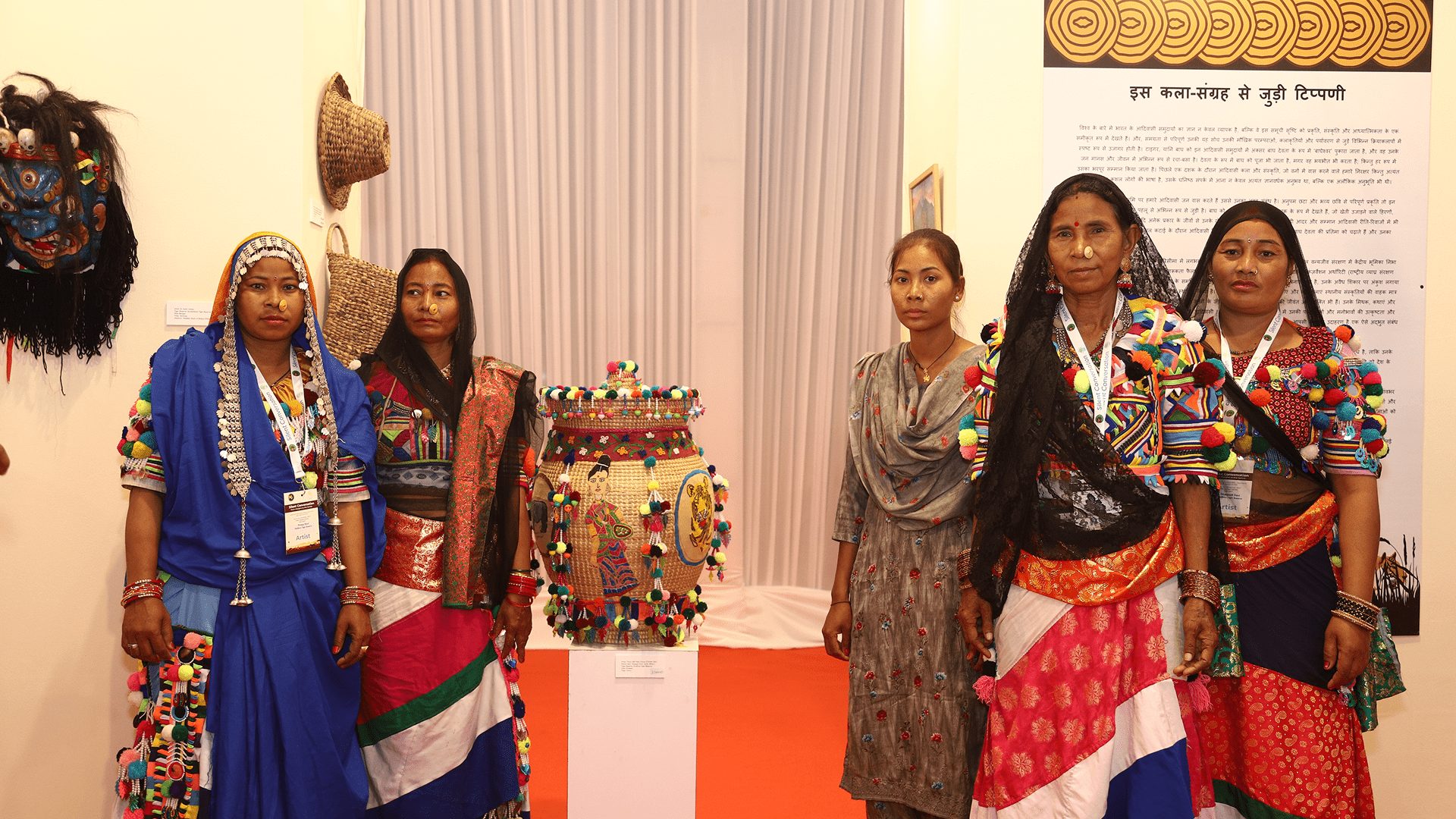Sustainable Livelihoods
In India, the economic, social and cultural rights of its tribal communities are granted protection under the supreme law of the land, that is, the Constitution of India. In furtherance of the directives given under the Constitution, the national government has been actively working towards granting due recognition and safeguarding the distinct cultural identity of these communities by promoting inclusive development and ensuring equitable participation in governance. The Government of India is working to improve the lives of these communities through welfare schemes like the Van Dhan Yojana, providing scholarships to students from the tribal communities and setting up Tribal Cooperative Marketing Development Federation of India Limited (TRIFED), which offers necessary support to the artisans from these communities and has significantly contributed to the enhancement of their livelihoods. However, to this day, certain tribal communities and other forest-dwelling communities depend on forest resources for their survival and livelihood. This puts pressure on the ecosystem to sustain life and replenish its resources. Therefore, there is a need to adopt sustainable living practices by generating alternate sources of income for these communities.

Sankala Foundation is working on providing sustainable livelihoods and creating alternative economic opportunities for the tribal and forest-dwelling communities of the country. Further, the Foundation is also working on capacity building and skill development of artists from tribal communities residing in and around the protected areas of the country. One such initiative is the annual ‘Silent Conversation: From Margins to the Centre’ art exhibition held at India Habitat Centre, New Delhi. Such initiatives aim to spread awareness about the urgent need to preserve the environment and explore alternative livelihood opportunities for these communities, thereby reducing their dependence on the forest resources and minimising human- wildlife conflicts. The proceeds of each artwork sold during the exhibition are directly credited to the respective tribal artists’ account. These artists also undergo capacity-building sessions and skill development training at the Rashtrapati Bhavan Museum, National Gallery of Modern Art (NGMA), Lalit Kala Academy, Ministry of Culture, which enables them to improve upon their existing skills as well as forge meaningful connections with their peers.
This upskilling initiative also empowers the artisans to showcase their art and craft on a larger platform with a diverse audience while receiving fair value for their works. In the future, the Sankala Foundation aims to provide an international platform for these tribal communities and forest dwellers who have been the true guardians of India’s cultural and natural heritage. The Foundation will work to promote and protect the tribal communities’ traditional conservation methods and further India’s 5000-year-old conservation ethos globally.
Sankala Foundation is also working to empower rural communities in Uttarakhand by promoting sustainable livelihoods and reducing dependence on forest resources. Through our engagement with the Uttarakhand Forest Resources Management Project (UFRMP) and the Japan International Cooperation Agency (JICA) initiative, we are strengthening Self-Help Groups (SHGs) by enhancing social, financial, human, physical, and natural capital.
The project supports communities to adopt value chains that boost local economies, enabling large-scale production of millets, spices, cow ghee, mushrooms, and processed fruits like apples, peaches, and apricots. Growth centres and value-addition facilities are creating new economic opportunities, while capacity-building programs are equipping SHG members with the skills needed for sustainable forest management.
By fostering women’s empowerment, strengthening government-community relations, and promoting diversified income sources, the project is ensuring that rural communities thrive while preserving Uttarakhand’s rich natural heritage. The focus remains on expanding opportunities in horticulture, apiculture, and livestock rearing to build resilient and self-sufficient communities.
Through these efforts, Sankala Foundation is working towards a future where tribal and forest-dependent communities thrive economically while preserving India’s cultural and ecological heritage.

